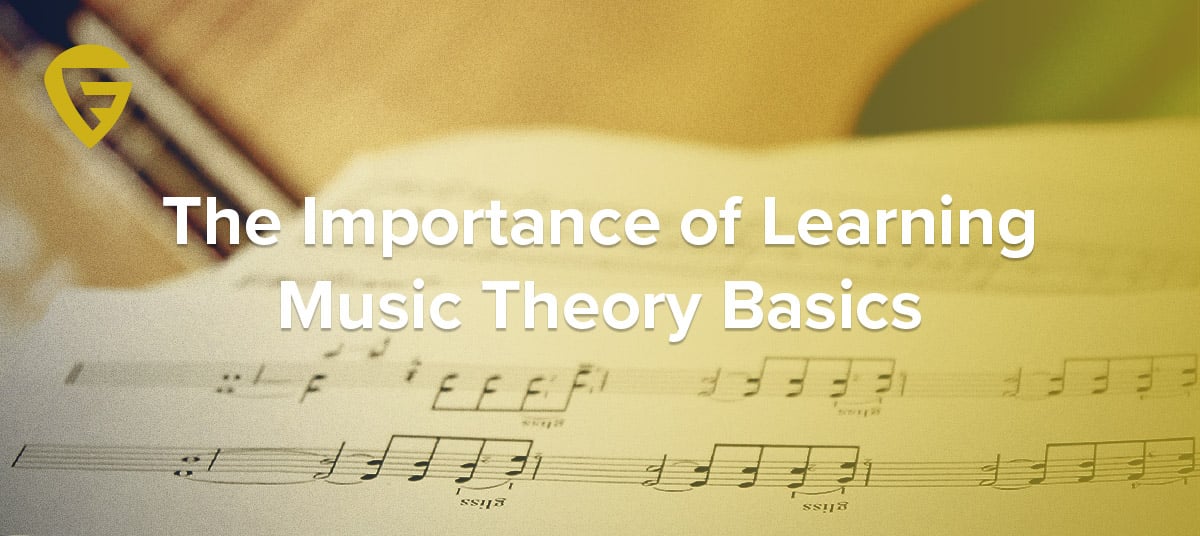- Home
- Instruments
- Gear
- Recording
- Lessons
- Reviews
- Blog

Learning basic music theory is often pushed away by modern musicians. People often don’t understand the vitality of learning scales and different chord progressions, which will set them back in their lessons. You can learn many different songs on guitar, but knowing the theory behind the music will push you towards becoming a great musician, and also having a greater appreciation for music.
Scales are a huge part of playing any instrument. They are your building blocks for writing and learning songs, and will absolutely always be relevant in music. With guitar, it is important to know that your strings go up by half steps, and it is important to know what note each of your strings is. The knowledge of both of those will help you to play scales with ease. To figure out a major scale, you need to know that they all progress with the same pattern. Every major scale goes by whole and half steps.
In their order, they will have two whole steps, a half step, three more whole steps, and end with a half step.. Minor scales will be a whole step, half step, three whole steps, a half step, and end on a whole step. On guitar, a whole step is two frets, and a half step is one fret.
The strings on a guitar are, from low to high, E, A, D, G, B, e. The second E is lower case because it is two octaves higher. An octave is two pitches that sound the same that are 13 half steps apart. If you pluck the top and bottom string on your guitar, you will notice that they are the same note, but one is a lot lower. Knowing the strings of your guitar is something that will help you immensely in scale studies. Practicing scales should be a part of every practice session that you have.
The other music theory basic that you will need to know as a guitar player is chord progressions. Now do not get me wrong, everyone loves tabs, but chords are a must to learn, no matter what people would say to you. Knowing which chords “go together” will help you to play songs by ear, and learn songs quickly. A good place to learn chords would be Chordie. If you know your scales, this part will be much easier for you. The most common progression you will encounter is a I, V, vi, IV pattern. When learning chords, you will go by roman numerals.
If you have a lower case roman numeral, the chord is minor, and if you have an upper case roman numeral, the chord is major. The “one” chord is the first note in your scale, the fifth is the fifth, etc. If you were to look at this chord progression in the key of C, it would be a C chord, G chord, A minor chord, and an F chord.
Understanding scales and chords will help you to become not only a better guitar player, but an overall better musician. Learning them will let you further yourself in guitar playing, as well as any other instrument. Yes, scales can be boring. They can take a long time to learn, but once you learn them, you will use them for just about everything. Learning basic music theory will be something you won’t regret, you just have to stick to it and never give up.

Reader Interactions